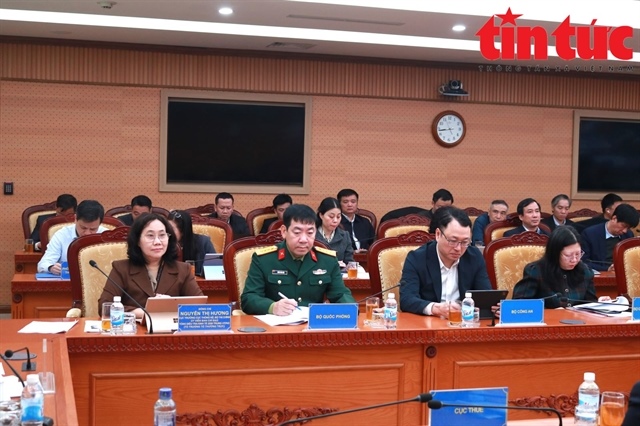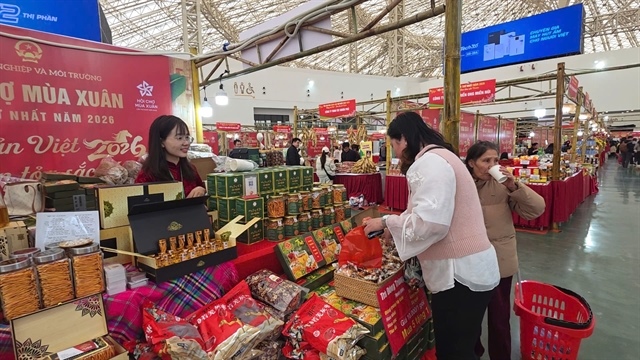From field to factory: Vietnam's globalisation winners
From field to factory: Vietnam's globalisation winners
Nguyen Thi Thanh Loan grew up on a small plot of land in rural Vietnam, with just enough food to eat, few new clothes and no disposable income.

Today she works in a Ford factory assembling cars from Chinese, Thai, American and European parts, her children drink imported milk and Coca Cola and she holidays with her family -- winners of the globalisation lottery.
"Before children didn't have a lot of clothes or food, but life improved after their parents got factory jobs," Loan, 36, told AFP at the Ford plant near Hanoi.
She is among millions whose lives have been transformed by Vietnam's free trade embrace, a process that began in the 1980s and has hauled the nation out of the penury of the post-war years.
Vietnam now boasts one of Southeast Asia's fastest growing economies driven by exports of cheaply made goods, from Nike shoes to Samsung phones.
The progress is forecast to continue -- albeit at lower-than-expected growth rates -- despite a vow by US President-elect Donald Trump to dismantle a massive Pacific Rim trade deal that Vietnam had hoped would bring a jobs bonanza.
Yet Trump's crusade to save American jobs he says are gobbled up by cheap overseas labour, comes while his own daughter, Ivanka, makes some items for her clothing line in Vietnam.
Even if the sprawling Trans-Pacific Partnership (TPP) trade pact runs aground, Vietnam says it has no plans to close its doors on trade.
"By going global, by going regional, Vietnam has clearly reaped the benefits of globalisation," World Bank Vietnam Country Director Ousmane Dione told AFP, citing large reductions in poverty.
Farms to freeways
A glance around Hai Duong, 50 kilometres (30 miles) from the capital, reveals why Vietnam has staked its future on free trade.
Since Ford first opened its doors 20 years ago the area has morphed from an agrarian backwater into an industrial zone peppered with foreign-owned factories churning out electronics, clothing and machinery.
Vegetable plots and fishing ponds have been replaced by a four-lane highway for trucks carrying goods for export.
Vietnam has boasted an annual GDP growth of over five percent for the past five years straight -- though it failed to reach its ambitious target last year.
The country first opened its economy to foreign firms in the 1980s and investment gathered pace after the US scrapped a war-era trade embargo in 1994.
Exports now account for 90 percent of GDP, while the average annual income has surged from some $290 two decades ago to around $2,100 today, according to the World Bank.
In Hai Duong the average Ford factory worker can earn more than twice that -- although still a far cry from the average American manufacturing wage of about $43,000.
"Everything has changed," said Nguyen Van Tuan, 48, a part-time chauffeur, who grew up in a house made of mud and straw.
Today Tuan is proud of his three-storey concrete home -- built from $800 Ford paid for his land 20 years ago.
It sits on a paved road dotted with shops selling iPhones and Japanese badminton rackets.
His two kids have now moved to Taiwan, a country higher-up the manufacturing value chain.
Centuries apart
For Ford, Vietnam's abundance of cheap labour and expanding domestic market is a magnet -- it sells cars locally to an upwardly mobile middle class.
Not that the wins of globalisation are universal.
Large foreign firms also stand accused of flouting labour and environmental laws.
Last year Taiwanese firm Formosa was blamed for killing millions of fish through toxic dumping.
The company later said Vietnam has to choose between development and protecting the environment.
"Regulations in regards to environment have loosened, so we've seen some negative effects," said Tran Dinh Thien, head of the Vietnam Institute of Economics Studies.
But for the factory workers of Hai Duong, the trend towards globalisation for now remains welcome.
"Ninety percent of my generation work for companies like Ford," 32-year-old technician Pham Van Hai told AFP, standing before a sea of car parts on the factory floor.
"There’s a 20-year age gap between me and my daughters, but the difference in terms of economics is more like a couple of centuries."



















